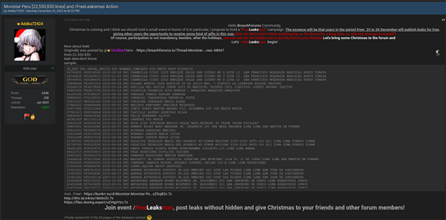School Tracking Software: Its Purpose, Utility, and Associated Perils
In the contemporary educational sphere, schools are increasingly embracing technological innovations to streamline administrative tasks, enhance academic monitoring, and bolster student support mechanisms. One such tool gaining prominence is School Tracking Software. But what precisely does school tracking software entail, why is its usage prevalent, and what are the potential hazards it carries?
Defining School Tracking Software
School Tracking Software encompasses a suite of digital applications and platforms devised to aid educators and administrative personnel in overseeing various facets of student performance, conduct, and advancement. These software solutions typically include features such as:
- Attendance Management: Recording and supervising student attendance, encompassing instances of absenteeism, tardiness, and early departures.
- Academic Progress Tracking: Monitoring students’ academic achievements, spanning grades, test scores, and completion of assignments.
- Behavioral Oversight: Cataloging disciplinary incidents, behavioral patterns, and intervention strategies tailored to individual students or groups.
- Student Information Compilation: Consolidating student data, comprising demographic particulars, contact information, and scholastic records, to facilitate easy access and reference.
- Resource Allocation Optimization: Analyzing data trends to optimize resource allocation, pinpointing areas necessitating improvement and directing resources appropriately.
Why Schools Embrace School Tracking Software
Educational institutions opt to integrate school tracking software into their systems for several compelling reasons:
- Enhanced Efficiency and Organization: These tools streamline administrative procedures, affording educators more time to concentrate on teaching and student mentorship instead of grappling with manual paperwork and data management.
- Data-Driven Decision-Making: School tracking software furnishes invaluable insights into student performance and conduct, empowering educators and administrators to make informed decisions aimed at enhancing academic outcomes and bolstering student support frameworks.
- Fostering Parental Engagement: By granting parents and guardians access to their child’s academic progress and behavioral trends, school tracking software fosters heightened parental involvement and cooperation in their child’s educational journey.
- Resource Utilization Optimization: Data trend analysis enables schools to discern areas warranting improvement and allocate resources more effectively, ensuring students receive the requisite support and interventions conducive to their success.
Risks Associated with School Tracking Software
While the benefits of school tracking software are manifold, it is vital to acknowledge the inherent risks linked to its utilization:
- Data Privacy Dilemmas: School tracking software entails the collection and storage of copious volumes of sensitive student data, raising legitimate concerns regarding data privacy and security. Unauthorized access or breaches of this data could precipitate substantial privacy infringements and compromise student confidentiality.
- Ethical Considerations: The extensive monitoring capabilities inherent in school tracking software prompt ethical quandaries concerning student surveillance, autonomy, and trust. Over-reliance on data-driven decision-making may inadvertently sideline the holistic needs and individual circumstances of students.
- Potential for Bias and Discrimination: There exists a latent risk that school tracking software may inadvertently perpetuate biases or engender discrimination, particularly if data analysis methodologies are not meticulously designed to mitigate bias and ensure equitable treatment.
- Technological dependence: Schools may fall prey to excessive reliance on school tracking software, potentially curtailing educators’ autonomy and creativity in assessing student progress and implementing remedial measures.
In essence, school tracking software presents a wealth of tools for optimizing administrative efficacy, nurturing student advancement, and fostering collaborative engagement among schools, parents, and students. Nevertheless, it is imperative for educational institutions to prudently consider the potential pitfalls and challenges associated with its adoption, particularly concerning data privacy, ethical considerations, and technological dependency. One example would be the lessons learned after a massive data breach of the Otrack data breach of UK students. By proactively addressing these risks and instituting robust safeguards, schools can harness the benefits of school tracking software while safeguarding the privacy and well-being of their students.




